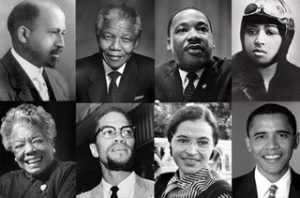Cultural, historical, and geographical issues of African Studies (AFST 250)
Instructor: Dr. Justice Gbolonyo
AFST_V 250-A_101: Term 1, Tuesdays/Thursdays, 11:00am – 12:30pm
AFST_V 250-A_201: Term 2, Tuesdays/Thursdays, 2:00pm – 3:30pm

This course, offered in both Term 1 and Term 2, provides an ethnographic and ethnological survey of Sub-Saharan African peoples and culture. It highlights the change and the resistance to change in the period since the age of exploration through the Berlin Conference of 1885, which redrew the map of Africa to serve the needs of European nations, but it also gives an in-depth look at Africa’s geography including its ecology as well as its ‘traditional’ cultures. The effect of the colonial period upon contemporary economic, political, and socio-cultural development within the context of globalization is examined through a variety of literature, film, music, and field notes. The general focus is on relations between humans and the environment, between cultures, and within societies.
The Languages of Africa (AFST 308)
AFST_V 308-201: Term 2, Mondays/Wednesdays, 3:30pm – 5:00pm
Linguistic survey of the languages of Africa, including typological and historical connections between languages, individual and comparative surveys of sound systems, word structures, sentence structures, semantics, and sociolinguistic properties of a representative selection of languages.
Cross-listed with LING 308
Arts of Africa and the African Diasporas (AFST 309)
AFST_V 309-201: Term 2, Tuesdays/Thursdays, 11:00am – 12:30pm
Engaging with hands-on research based on the African collections of the UBC Museum of Anthropology, this course takes a comparative and historical approach to the arts of Africa and the African diasporas, exploring distinct formulations of what constitutes art in different parts of Africa and diasporic contexts. The course explores key debates that have framed the histories of African Art – tradition vs. innovation vs. authenticity; ethnic arts vs. national arts; art practices under colonial rule; modern African nations and national arts; international circulation of African arts and artists; markets, ownership, repatriation and reparation – and investigates their contemporary resonances.
Cross-listed with ARTH 309
Topics in African Studies (AFST 350)
AFST_V 350-A_101: Term 1, Tuesdays/Thursdays, 12:30pm – 2:00pm
Literatures and Cultures of Africa and/or the Middle East (AFST 370A)
AFST_V 370-A_201: Term 2, Mondays, Wednesdays, Fridays, 11:00am – 12:00pm
African Climate Fiction
What is African climate fiction? How does this genre of African literature and film engage the current climate crisis of our planet? What aesthetic strategies do African literature and film deploy to comment on the ongoing climate crisis?
To engage these questions, we will start by studying the configurations of human and other-than-human actors in African epics and folktales as well as other foundational literary texts selected from across the continent. Drawing on this Africanist account of planetary engagement, we will then explore key terms in African environmentalism and climate fiction as we define fiction broadly to include film and social narratives. We will then explore how African cultural actors’ investigations of multispecies engagements, the ethics of resource use, the so-called Anthropocene, and the concept of the planetary unsettle the colonial impulses that often lurk in the environmentalisms and environmental policies of Global North political and academic frames. We will consider the sorts of “environmental tragedies” that Western environmentalism links to Africa such as the environmental degradation in the Niger-Delta and African civil wars stoked to serve cold war actors’ resource needs. Just as importantly, and contesting the environmental affects and policies of Global North actors, we will also explore how diverse African cultural imaginaries challenge the Western narrative of environmental tragedy and that narrative’s weak capacity to track the connections of rural and urban spaces, and the logics of extractivism that often ride on Western rhetoric of environmentalisms and climate change.
Cross-listed with ENGL 370
African Diasporic Culture in African Canadian Communities (AFST 450R)
AFST_V 450-R_201: Term 2, Tuesdays/Thursdays, 9:30am – 11:00am
Beginners Swahili I (SWAH 101)
SWAH_V 101-101: Term 1, Monday, Wednesday, Friday, 11:00am – 12:00pm
Skills in listening to and speaking Swahili, a major language of Africa and one of the most widely spoken languages in the world. Emphasizes everyday vocabulary, core grammar, use in context, and connections between the language and African cultures.
Beginners Swahili II (SWAH 102)
SWAH_V 102-201: Term 2, Monday, Wednesday, Friday, 11:00am – 12:00pm
Skills in using Swahili in a range of social contexts. Training in grammar and vocabulary that builds fluency, and in using the language appropriately for meaningful interactions with native speakers.
Prerequisite: SWAH 101 or equivalent.